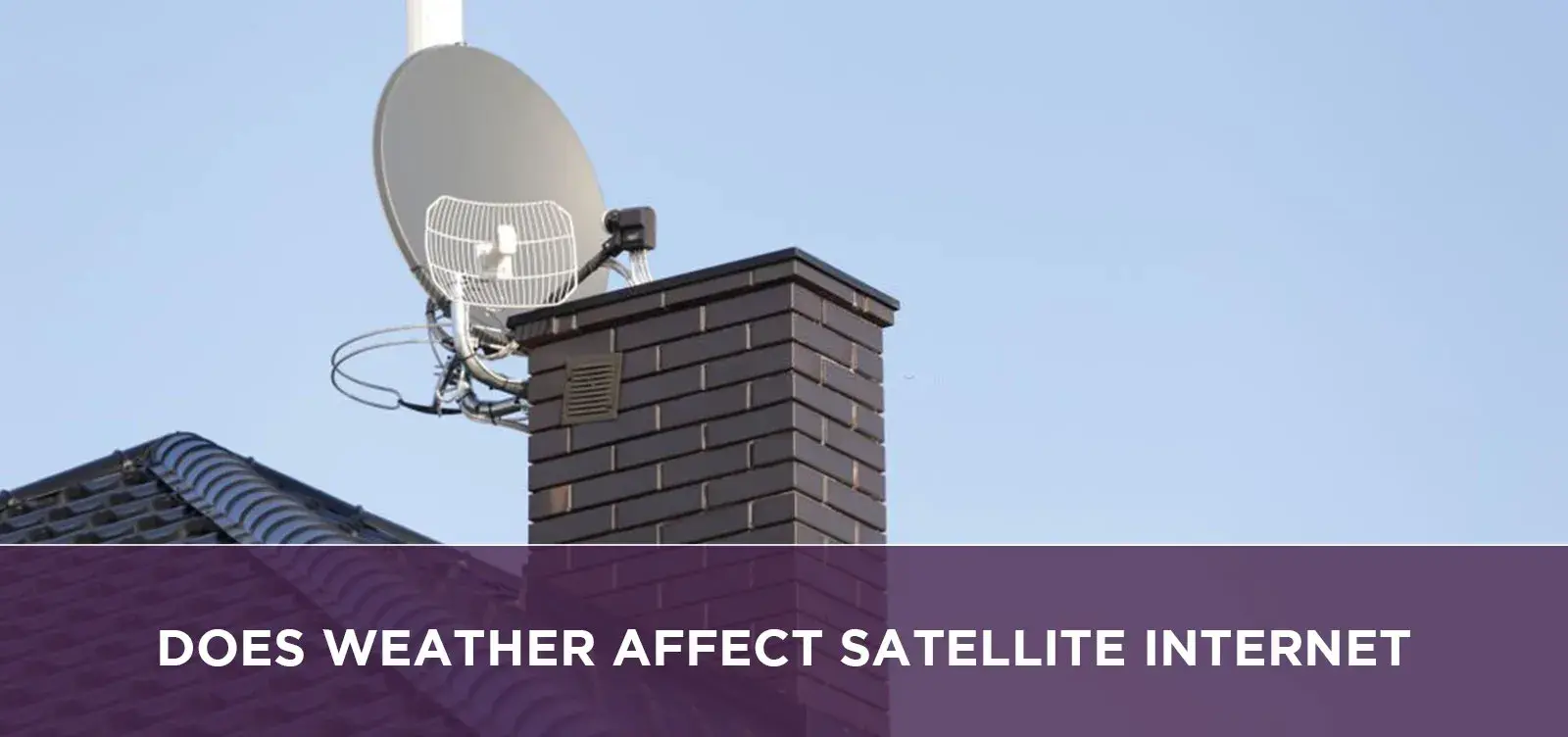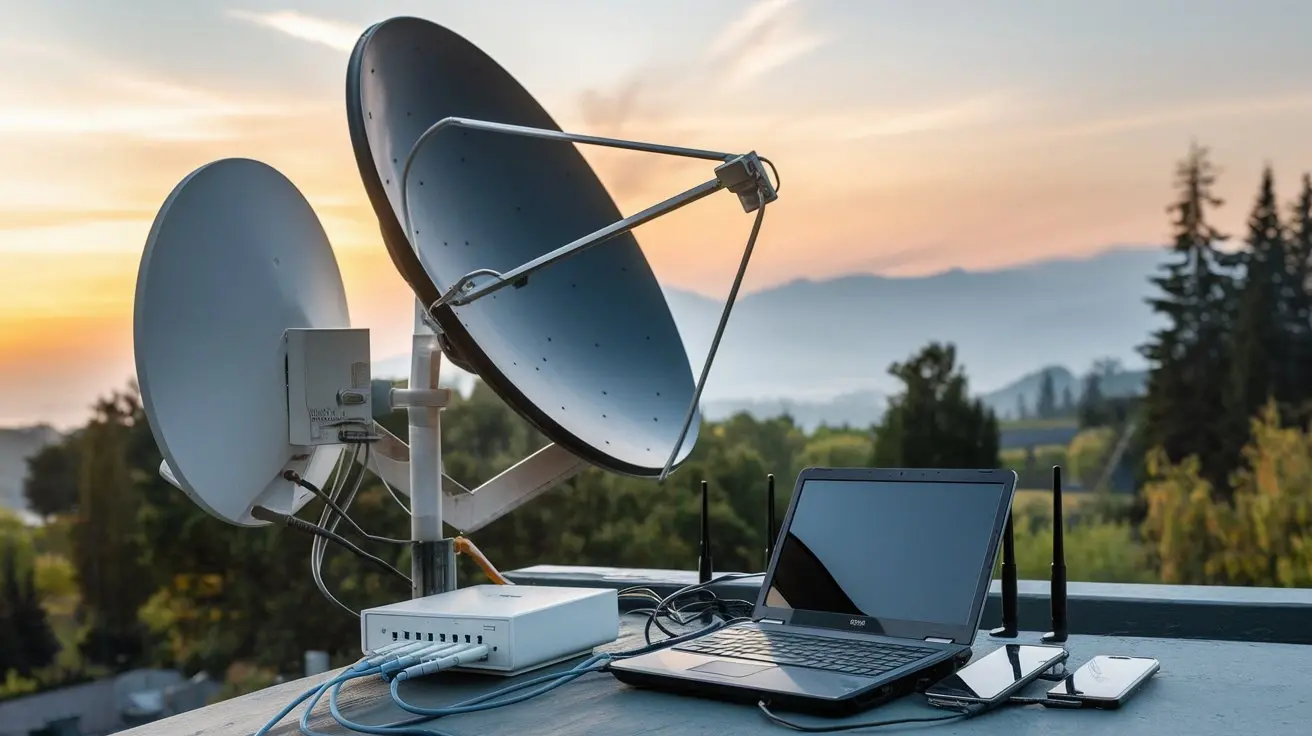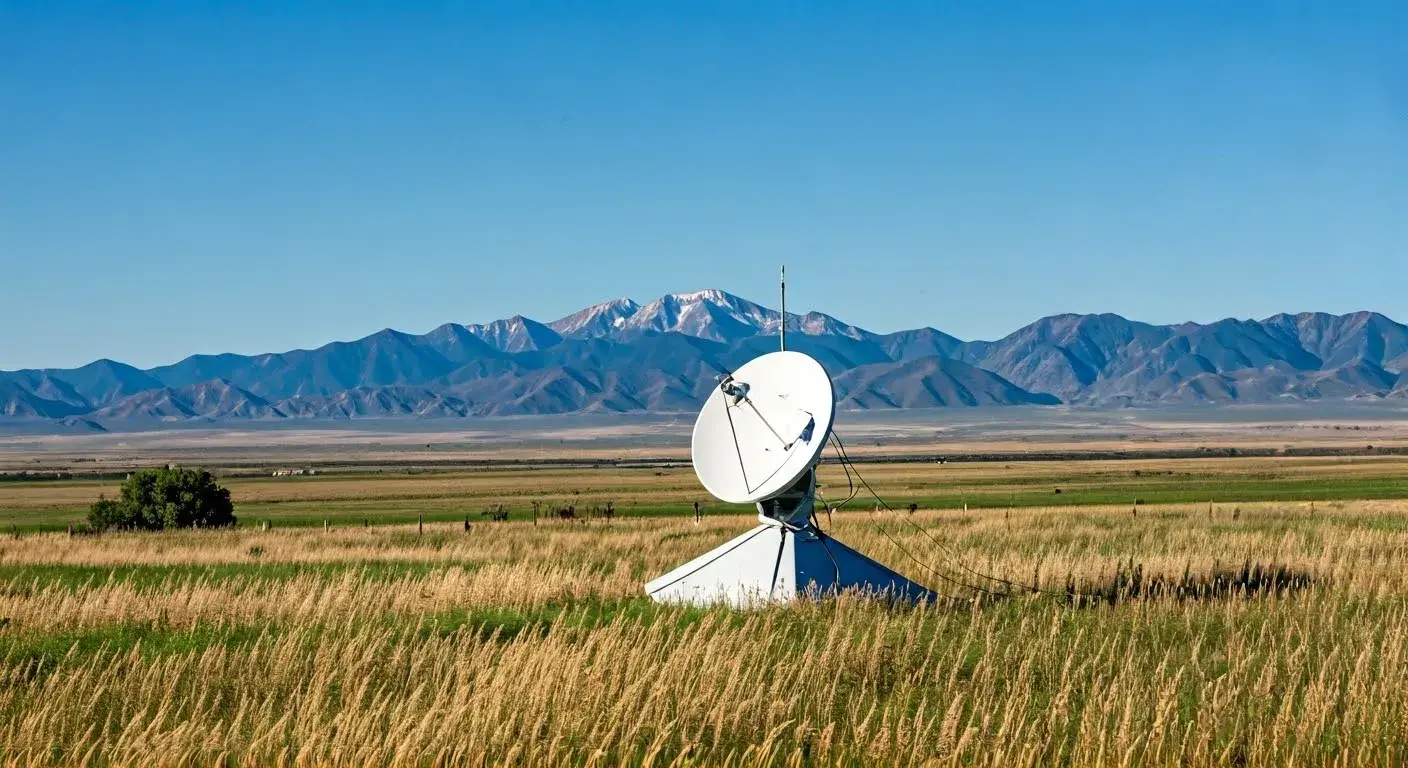
Both business and recreation in our linked world depend on a reliable internet connection. Many of us use satellite internet to close the digital gap, particularly in distant locations where conventional broadband is not accessible. But have you ever considered if your satellite internet connection can be impacted by the temperature? We will explore this fascinating issue in this extensive post and provide ideas based on both knowledge and practical experience.
Understanding Satellite Internet
Let us first quickly review how Satellite internet works before delving into how weather affects it. To move data from and to the user's dish and modem, satellite internet depends on a network of orbiting satellites. Unlike conventional cable or DSL connections, satellite internet doesn't need local physical infrastructure. This makes it a reasonable choice for far-off, rural areas.
How Weather Affects Satellite Internet
Satellite internet service may be impacted by the weather. Here is a list of the many ways that various weather events could affect your connection:
Rain and Precipitation
The satellite signals headed from your dish to the orbiting satellite might be absorbed and scattered by heavy rain. Slower internet speeds and a brief loss of signal strength might follow from this dispersion phenomenon also known as rain fade. Modern satellite technology has developed, nevertheless, to greatly reduce the effect of rain fade.
Snow and Ice
Snow, rain, and ice may all block the signal route from your dish to the satellite. Snow or ice accumulating on the surface of the dish could degrade signals. Frequent maintenance including clearing snow accumulation helps to maintain a steady connection throughout winter.
Storms and Cloud Cover
Strong storms and thick cloud cover may also cause more disturbance in satellite communications. Particularly thunderstorms could cause electromagnetic interference that compromises the quality of your internet connection. Moreover, heavy cloud cover might weaken the signal's intensity, therefore slowing down the pace.
Wind
Strong gusts might move your satellite dish so that it loses alignment with the satellite. Signal loss and disrupted service might follow from this misbalance. Correct installation and dish fastening will assist in reducing this problem.
Tips to Improve Satellite Internet Performance in Bad Weather
Although you have little influence over the weather, you may act to minimize the effects on your satellite internet:
- Maintaining an unhindered signal route requires keeping your dish free of trash, snow, and ice.
- Invest in premium satellite tools and guarantee correct installation to enhance performance.
- Stay updated about forthcoming weather to help you to foresee any disturbances.
- Alternative Connectivity: For important chores during bad weather, think about keeping a backup internet connection—like a mobile hotspot.
- Advice from your satellite internet provider on maximizing performance in bad conditions.
Conclusion
In essence, satellite internet performance may be influenced by weather; nonetheless, contemporary technology has made great progress in reducing these disturbances. Following the advice above and being informed will help you to guarantee a more consistent internet connection even under unfavorable weather conditions.
Get started with HughesNet today! Call (888) 797-3141 to upgrade your internet connection and enjoy seamless browsing.
FAQs
Is satellite internet more prone to weather-related issues than other types of internet connections?
Satellite internet can be more susceptible to weather-related disruptions compared to cable or fiber-optic connections. However, advancements in technology have significantly improved its resilience to adverse weather conditions.
Can heavy snowfall damage my satellite dish?
While heavy snowfall can obstruct the signal path, it's unlikely to damage a well-installed satellite dish. Regular maintenance and clearing of snow buildup can help maintain a stable connection.
Are there satellite internet plans designed for areas with extreme weather?
Some satellite internet providers offer plans tailored to regions with challenging weather conditions. These plans often include additional features to mitigate weather-related disruptions.
How can I check if my satellite dish is properly aligned?
Most satellite internet providers offer online tools or apps that allow you to check the alignment of your dish. Follow their guidelines to ensure it's correctly pointed at the satellite.
Does lightning pose a risk to satellite internet equipment?
Lightning can potentially damage satellite equipment, so it's advisable to unplug your modem and dish during severe thunderstorms.
Can I use satellite internet during a hurricane?
Satellite internet may experience interruptions during a hurricane due to high winds and heavy rainfall. It's essential to follow safety guidelines during such extreme weather events.





